Key highlights
- Understand the essentials of dedicated server configuration and why it matters for your website’s performance.
- Follow our step-by-step guide to configure dedicated servers for maximum efficiency and security.
- Discover the key differences between a dedicated server and a cloud server to determine the best option for your needs.
- Choose the ideal dedicated server provider, such as Bluehost, which offers top-notch performance and reliable support for your hosting requirements.
- Tackle common dedicated server configuration challenges and learn practical solutions to keep your server running smoothly.
When it comes to ensuring the best performance and security for your website, dedicated server configuration plays a crucial role. Unlike shared hosting, where resources are split among multiple users, a dedicated server offers you complete control over your hosting environment.
This means you can tailor the configuration to meet your unique needs—whether it’s for running resource-intensive applications or ensuring top-tier security.
If you’ve been searching for a way to improve your website’s speed, reliability and security, configuring a dedicated server might be the solution.
In this guide, we’ll walk you through the dedicated server setup steps and provide tips on choosing the right dedicated server configuration for your needs. We’ll also help you avoid common pitfalls, so your server is optimized for long-term success.
Let’s learn!
TL;DR – How to configure a dedicated server (2025)
- A dedicated server offers complete control, performance and security for high-traffic websites or custom applications.
- Steps to configure: Choose plan → OS setup → Network configuration → Install software → Implement security → Set up backups.
- When to use it: For gaming servers, high-traffic sites, or custom server-side environments.
- Bluehost Dedicated hosting provides high performance, scalability and 24/7 support—ideal for businesses that need reliability and full control.
What is a dedicated server?
A dedicated server is a hosting solution where a single server is reserved for one user or business. Unlike shared hosting, which distributes resources among multiple websites, a dedicated server provides full control over server resources. This includes hardware, operating system settings and network configuration.
This setup ensures high performance, enhanced security and the flexibility to configure the server to meet your specific needs. Whether you’re hosting a site, running a game server or using resource-heavy apps, a dedicated server lets you customize for peak performance.
Also read: What is Dedicated Server Hosting? A Complete Guide for 2025
What are the advantages of a dedicated server?
- Complete control: A dedicated server gives you full control over your server configuration, from installing software to managing resources.
- High performance: With dedicated server hosting, your website benefits from exclusive use of server resources, ensuring faster speeds and better performance, even during high traffic periods.
- Improved security: A dedicated server is less vulnerable to security breaches. You can implement robust security measures tailored to your needs.
- Customization options: From the operating system to network configurations, you can fully customize your dedicated server setup to meet the demands of your website or application.
Also read: Benefits of Dedicated Server Hosting
What are the disadvantages of a dedicated server?
- Higher costs: Dedicated server hosting is more expensive than shared hosting because it offers dedicated resources and advanced configurations.
- Complex setup: Configuring a dedicated server requires technical knowledge. If you lack expertise, you may need external assistance or support, like our Dedicated hosting plans.
- Maintenance responsibility: With a dedicated server, you’re responsible for server updates, security patches and routine maintenance, unless you opt for managed hosting.
Also read: Managed Dedicated Server Hosting: Performance, Uptime & ROI for Growing Businesses
Dedicated server configuration: A step-by-step guide
Configuring a dedicated server correctly is essential to ensuring your website or application performs at its best, remains secure and can scale as your business grows.
Here is a quick glance at the steps involved in configuring a Dedicated server.
| Step | Action | Tool/example |
| 1 | Choose the right plan | Bluehost, HostGator |
| 2 | Select OS | Linux (Ubuntu/CentOS), Windows |
| 3 | Network config | Static IP, DNS, Firewall |
| 4 | Install software | Apache, MySQL, cPanel |
| 5 | Implement security | SSH keys, IDS, SSL, Fail2Ban |
| 6 | Backup & disaster Recovery | Daily snapshots, offsite backups |
Whether you’re hosting a high-traffic website, a dedicated game server or a custom application, the proper dedicated server configuration is crucial.
This server setup process will walk you through the process of setting up your dedicated server, from choosing the right plan to ensuring your server’s security and performance.
Let’s take a look at each step in detail.
Step 1. Choose the right dedicated server plan
The first step in the dedicated server setup is selecting the appropriate server plan. Factors such as the amount of traffic you expect, the type of applications you need to run and your budget will influence your decision. Dedicated server plans typically offer various configurations based on CPU performance, RAM size, storage capacity and bandwidth.
If you expect high traffic or need to run resource-intensive applications, a more powerful server plan is recommended. For example, consider a bare metal server if you require maximum performance and full control over hardware settings. Ensure that your dedicated server configuration can support future scalability and growing demands by choosing a flexible plan that fits your current needs while allowing for upgrades.
Bluehost dedicated server hosting combines outstanding performance, dependable security and comprehensive support, making it an ideal solution for your business.
Why Bluehost is the right choice:
- Superior performance and uptime: Bluehost dedicated server hosting offers powerful and consistent performance, thanks to dedicated resources. With our 99.9% uptime guarantee, your website and applications will consistently remain accessible, even during periods of heavy traffic.
- Expert support available 24/7: Bluehost provides continuous support through phone, chat or email. Our specialists are prepared to help with initial server configuration, troubleshooting issues and ongoing maintenance to ensure seamless operation.
- Comprehensive security measures: We emphasize robust security, incorporating built-in SSL certificates, advanced firewalls, intrusion detection tools and regular software updates. Our stringent security protocols protect your server environment and safeguard your sensitive information.
- Easy scalability: As your business expands, Bluehost allows effortless scalability. You can readily enhance your dedicated server’s CPU, RAM or storage resources to accommodate growing demands, ensuring your hosting environment scales with your business.
- Transparent pricing and flexible payment options: Bluehost ensures clarity with straightforward pricing and no unexpected costs. We also offer versatile payment plans that align with your financial strategy, enabling you to confidently invest in dedicated hosting without significant upfront expenses.
Choose Bluehost dedicated server hosting for unmatched reliability, scalability and security. With customizable plans and exceptional 24/7 support, we provide the essential tools to drive your business success.
Start now with Bluehost Dedicated server hosting!
Step 2. Select the operating system
After selecting the right dedicated server, the next step is choosing the operating system (OS) that best suits your needs. You can choose between Linux or Windows, each offering different advantages.
- Linux is a popular choice due to its stability, flexibility and cost-effectiveness. It’s perfect for users who want full control over their server configuration and are comfortable working with the command line interface (CLI). Linux supports a wide range of server applications, making it ideal for most users.
- Windows offers a more user-friendly interface and provides extensive support for applications like Microsoft SQL Server, ASP. NET and others. If your dedicated server setup relies on software that’s tailored for Windows, this might be the right choice.
Choosing the right operating system is essential for ensuring the server meets your needs and that you have the tools to configure it properly.
Step 3. Configure network settings
Once your dedicated server is set up with the desired OS, it’s time to configure your network settings. These settings ensure that your server communicates effectively with the outside world and remains secure.
Start by assigning a static IP address to your server. Static IPs are essential for servers because they provide a fixed address for users to connect to your server consistently. Next, configure your DNS settings to ensure proper domain resolution. Configure a hardware firewall and add security layers like IDS and SSH keys for safe remote access.
Also read: Setting Up Ruby on Rails
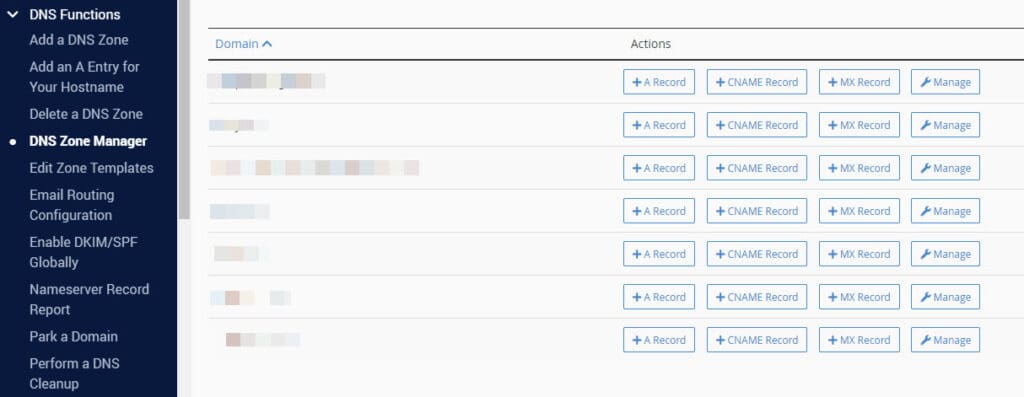
By properly configuring your network settings, you’ll ensure that your dedicated server is reachable, secure and optimized for performance.
Also read: A Guide to WordPress Settings
Step 4. Install and configure essential software
Your dedicated server setup would be incomplete without installing essential software. Depending on your needs, you may require different software components.
- Web server software like Apache or Nginx will allow you to serve websites or web applications.
- Database servers such as MySQL or PostgreSQL will be needed to handle data storage and management.
- For easy management, you can install a control panel like cPanel or Plesk, which provides a graphical interface to manage your server, emails, databases and security settings.
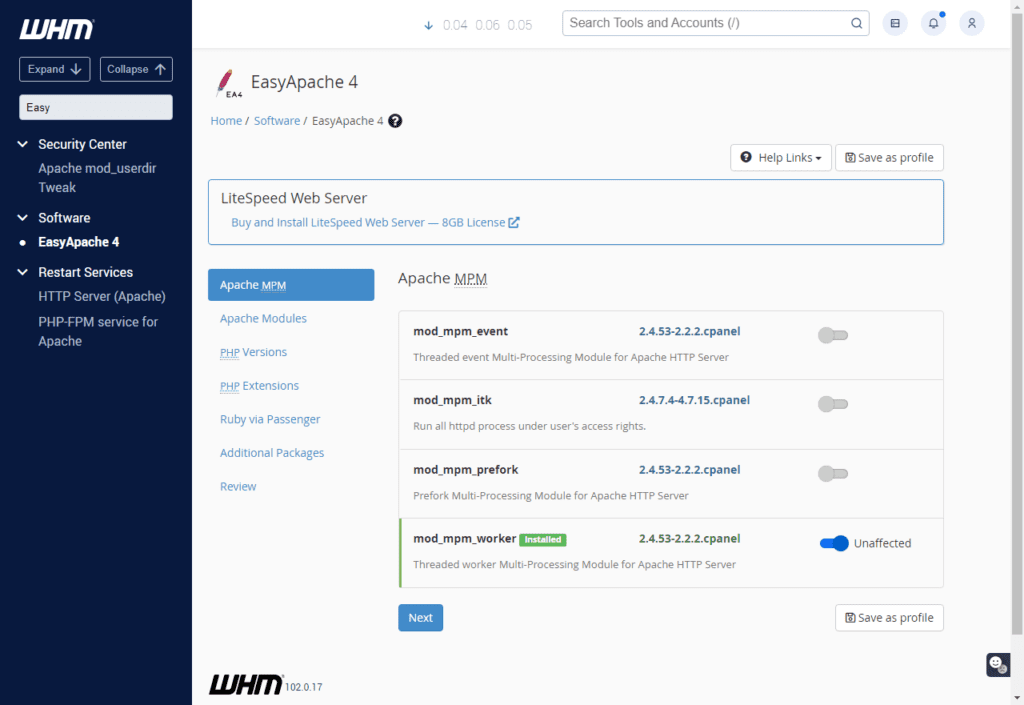
Carefully configure each software package to ensure that your dedicated server setup runs smoothly and securely. For example, ensure that your web server is optimized for high performance and that your database server is configured to handle high query volumes.
Also read: VPS & Dedicated Hosting: Root WHM (rWHM)
Step 5. Implement security measures
Security should always be a top priority when configuring a dedicated server. Since you have full control over the server, it’s important to implement strong security measures to protect your data and resources.
- Install software updates regularly to ensure your operating system and applications are protected against known vulnerabilities.
- Set up SSH keys for secure access and disable password-based logins for enhanced security.
- Implement a firewall and configure it to block unwanted traffic and restrict access to specific ports.
- Consider using intrusion detection systems (IDS) to monitor any suspicious activity and ensure that your dedicated server configuration is secure.
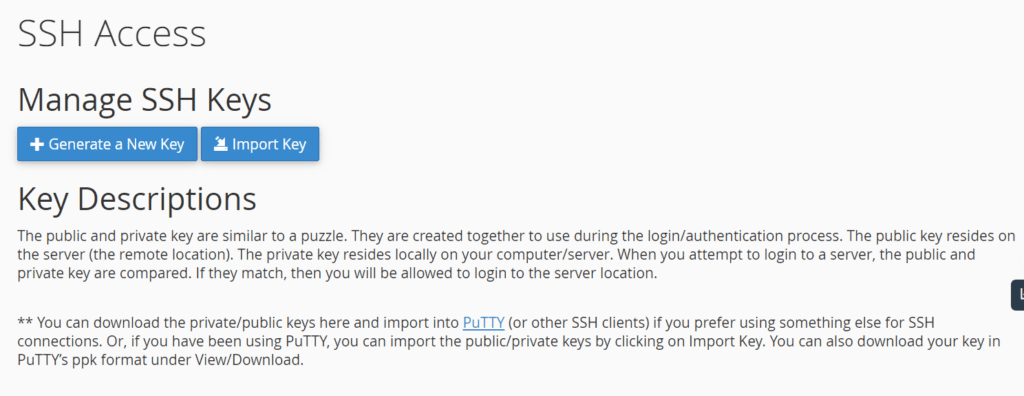
By taking proactive steps to enhance your server’s security, you’ll reduce the risk of security breaches and safeguard sensitive data.
Step 6. Set up backup and disaster recovery
Regular backups are crucial for ensuring that your dedicated server remains protected against data loss. Set up automated backup solutions to regularly back up your website and server data. Ideally, store backups off-site to ensure data safety in case of server failure or a disaster.
- Backup options may include full backups, incremental backups or daily snapshots of your server’s state. The frequency of backups will depend on how frequently your server data changes.
- Implement a disaster recovery plan that outlines how to restore your server from a backup in the event of a failure.
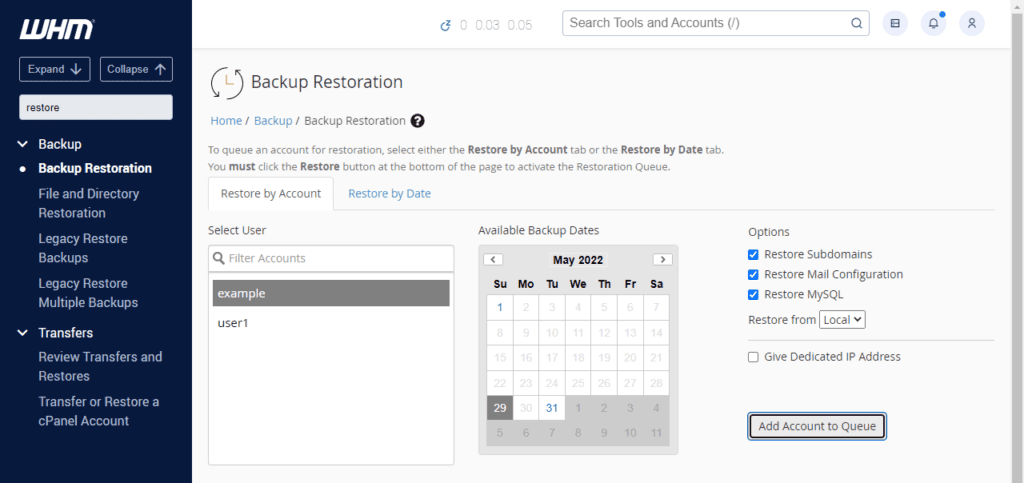
A well-executed backup strategy helps ensure that your dedicated server setup can quickly recover from any data loss or server failure.
What is the difference between a dedicated server and a cloud server?
When choosing between a dedicated server and a cloud server, it’s essential to understand how each option impacts performance, scalability and cost.
Dedicated server vs. cloud server: Key differences
| Feature | Dedicated server | Cloud server |
| Resource allocation | Exclusive use of server resources for one user | Shared resources from a pool, scalable as needed |
| Scalability | Limited scalability; fixed resources | Highly scalable; resources can be adjusted on-demand |
| Cost | Higher upfront cost; fixed pricing | Pay-as-you-go; more cost-effective for fluctuating needs |
| Management | Requires hands-on management for setup and maintenance | Often comes with managed services, easier to manage |
| Security | High security due to dedicated resources | Secure, but relies on shared infrastructure |
1. Resource allocation
A dedicated server provides exclusive resources to a single user.
You get complete control over the server configuration, including CPU, RAM and storage. This ensures maximum performance for websites with high traffic or resource-intensive applications.
On the other hand, cloud servers allocate resources from a shared pool, allowing for scalability but limiting control over the hardware.
2. Scalability
Cloud servers excel in scalability.
You can easily adjust resources such as RAM and storage to meet your specific needs. This makes them ideal for businesses that experience fluctuating traffic. A dedicated server, however, offers fixed resources.
While it doesn’t scale as easily as a cloud server, it provides more complete control over your server’s hardware and configuration.
3. Cost
A dedicated server generally comes with a higher upfront cost because you’re paying for all of the server’s resources. This makes it ideal for businesses that need high performance and security.
In contrast, cloud servers use a pay-as-you-go pricing model, which can be more affordable for companies with varying demands.
However, dedicated server hosting provides better long-term value if your server’s demands are consistent and high.
Also read: When Should I Invest in a Dedicated Server?
4. Management
Managing a dedicated server requires more involvement.
You’ll need to handle server setup, software installation and regular maintenance unless you choose a managed hosting plan. Cloud servers, however, are easier to manage.
Many cloud providers offer server management services, so you don’t have to worry about the complexities of server maintenance and configuration.
4. Security
A dedicated server provides the highest level of security since no other users share the server.
This makes it ideal for businesses with sensitive data or dedicated game servers that require stringent security measures.
While cloud servers are also secure, they rely on shared infrastructure, which can expose your server to additional vulnerabilities.
When to choose a dedicated server?
Choose a dedicated server if you need complete control over your server setup.
This is particularly important for businesses that require high performance and security for websites with high traffic volumes.
Dedicated server hosting is also ideal if you’re running dedicated game servers or resource-heavy applications.
If you require more customization and security, a dedicated server setup will give you the freedom to configure everything to your exact specifications.
When to choose a cloud server?
Opt for a cloud server if your business requires scalability and flexibility.
With cloud servers, you only pay for the resources you use, making it a cost-effective option for fluctuating traffic. It’s also the right choice if you need fast setup times and easy management.
For instance, cloud servers are ideal for developers or businesses that need rapid resource adjustments.
Also read: Cloud Hosting vs Dedicated Hosting
How to choose the ideal dedicated server provider?
Selecting the right dedicated server provider is a crucial decision for your business. Your choice impacts everything from performance and security to scalability and support. Here’s how to choose the best provider for your needs.
Key factors to consider when choosing a provider
Choosing the right dedicated server provider can directly impact your site’s performance, security and growth.
Here are the key factors to keep in mind before making your decision:
- Performance and reliability: Ensure the provider offers high performance with dedicated server setups that provide reliable uptime. Look for a provider that guarantees 99.9% uptime and has a proven track record of consistent performance.
- Customer support: Excellent customer support is essential. A dedicated server provider should offer 24/7 support, including phone, chat and email, to help with any issues that may arise.
- Security features: Select a provider that offers robust security measures, including firewalls, intrusion detection systems and regular software updates. Your dedicated server setup should be fully protected against potential threats.
- Scalability: If your business is growing, choose a provider that offers scalable options. Some dedicated server providers allow you to scale your resources easily as your needs grow.
- Pricing: Compare pricing plans to ensure they fit within your budget. While dedicated servers typically have higher upfront costs, providers should offer clear pricing and flexible payment options for long-term use.
Bluehost dedicated hosting: Your ‘dedicated’ support
When it comes to dedicated server hosting, Bluehost provides a powerful combination of performance, security and support to ensure your server setup meets all your business needs.
Here’s why Bluehost stands out:
- High Performance and reliability: Our dedicated server hosting solutions provide fast and reliable performance with dedicated resources. We guarantee 99.9% uptime, ensuring your website and applications remain online, even during peak traffic periods.
- 24/7 expert support: At Bluehost, we provide around-the-clock customer support via phone, chat or email. Our team is ready to assist with server setup, troubleshooting and any maintenance tasks you may need to ensure smooth operations.
- Robust security features: We prioritize security with built-in SSL certificates, firewalls, intrusion detection systems and regular software updates. Our security protocols are designed to protect your dedicated server setup from potential threats and safeguard your data.
- Scalable hosting solutions: As your business grows, Bluehost offers scalable solutions to meet your increasing demands. You can easily upgrade your dedicated server resources, such as CPU, RAM or storage, to ensure your hosting environment can support your business expansion.
- Clear pricing and flexible payment: We offer transparent pricing with no hidden fees, making it easier for you to budget your hosting costs. Additionally, we offer flexible payment plans that cater to your needs, allowing you to invest in dedicated server hosting without incurring excessive costs.
Choose Bluehost for reliable, high-performance hosting that grows with your business. With flexible plans, 24/7 support and robust security, you’ll have everything you need for success.
Get started today with Bluehost Dedicated hosting today!
Understanding pricing and service plans
When selecting a dedicated server, understanding the pricing structure is key. Different providers offer a range of plans, so it’s important to know what’s included and how the pricing works. Here’s what to look for:
1. Transparent pricing
Ensure the pricing is clear and without hidden fees. Many providers may offer low upfront costs but charge extra for essential features like SSL certificates, backup services or software updates. Make sure you understand exactly what’s included in the plan and what’s considered an additional cost.
2. Scalable options
As your business grows, so will your hosting needs. Choose a provider that offers scalable options for your dedicated server. You’ll need the flexibility to add more resources, like storage and bandwidth, as your traffic and data demands increase. This ensures your server grows with your business needs.
3. Features in dedicated server plans
A quality dedicated server plan should come with the necessary features to ensure smooth operation, including:
- 24/7 support to help you with server configuration and maintenance.
- Dedicated resources like RAM, CPU and bandwidth to optimize performance.
- Advanced security features such as firewalls and intrusion detection systems to protect your data.
At Bluehost, you’ll receive fully customizable dedicated server hosting plans that are both cost-effective and feature-rich, allowing you to pay only for what you need.
Importance of server location and data center selection
Choosing the right server location for your dedicated server can have a major impact on the speed and reliability of your website or application. Here’s why it matters:
1. Reduced latency and faster load times
Selecting a server location closer to your target audience can reduce latency and improve load times. The faster your website loads, the better the user experience, leading to higher engagement and satisfaction.
2. Reliability and redundancy
Make sure your dedicated server is hosted in a data center with proper redundancy. This ensures your server remains online even if there’s a hardware failure. Look for providers with backup power, network connections and failover systems to keep your dedicated server setup up and running smoothly.
3. Security and compliance
Security should always be a top priority. The data center should comply with industry standards and offer robust protection, including 24/7 monitoring and restricted physical access. Ensure that your dedicated server is secured from physical and cyber threats.
Also read: VPS & Dedicated Hosting: Secure your Server
Common dedicated server configuration challenges
Setting up and managing a dedicated server comes with various challenges. Below are the key areas to focus on when configuring and maintaining your dedicated server setup.
Understanding resource allocation
Correctly allocating resources like central processing unit (CPU), RAM and storage is crucial for a dedicated server configuration. Misallocating resources can lead to performance issues.
- CPU and memory management: Ensure the chosen operating system supports the right configuration of server settings for your specific application needs.
- Gaming server requirements: If setting up a gaming server, allocate extra resources for smooth gameplay and low latency.
- Dedicated server setup steps: Follow the right server configuration guide to ensure optimal resource distribution.
Managing performance issues
Performance issues are common if your dedicated server is not configured correctly or maintained. You need to continuously monitor and adjust the server settings to ensure peak performance.
- Server bottlenecks: If the server’s physical server resources are not properly allocated, you may face slow load times and reduced performance.
- Resource monitoring: Regularly check the central processing unit, memory and storage usage to avoid gaming server lag or web server slowdowns.
Security challenges and how to overcome them
Security is a top concern when setting up and managing a dedicated server. With your own dedicated server, you must ensure the server is properly secured to prevent unauthorized access and data breaches.
- Intrusion detection: Configure intrusion detection systems and firewalls to protect your server from potential threats.
- Public IP address: Securely configure your public IP address to prevent unwanted remote access while allowing legitimate traffic.
- Server settings: Review and configure your server’s network and security settings to prevent vulnerabilities.
Troubleshooting common dedicated server setup problems
Setting up and maintaining a dedicated server can come with various challenges. Here are common problems that can arise and how to troubleshoot them effectively:
Connectivity issues
Connectivity problems can prevent your dedicated server from communicating properly with clients, affecting the availability of your website or application.
- Check network settings: Ensure your server’s network configuration is correct. If your own dedicated server is not connecting to the internet, review the server settings for any misconfigurations.
- Public IP address: Verify that your public IP address is configured correctly, especially if you’re running a gaming server or hosting multiple services.
- Same network configuration: If multiple servers are on the same network, ensure that all server settings are optimized for optimal communication.
Server performance optimization
Optimizing your dedicated server performance is essential for handling high traffic or gaming server demands. Misconfigurations or inadequate resources can lead to slow speeds and a poor user experience.
- Central Processing Unit (CPU): Ensure that the central processing unit is properly configured and can handle the load. If necessary, adjust the server configuration guide for better performance.
- Memory and storage: Regularly monitor memory usage and storage. If you’re running a gaming server, ensure that resources are allocated based on demand to avoid lag or crashes.
- Dedicated server configuration: Use the dedicated server configuration tools to ensure that resources like CPU and RAM are allocated adequately for optimal performance.
Error fixes and log management
Managing server errors and logs is crucial for identifying issues and ensuring smooth operation. Here’s how to manage common mistakes:
- Review server logs: Check the server logs regularly for any issues that may arise during operation. This is particularly important for dedicated server setups that handle complex tasks.
- Correct server settings: Misconfigurations in server settings could lead to errors. Follow the dedicated server setup steps to ensure that all server settings are correctly configured.
- Fixing common errors: Use a server configuration guide to fix common errors such as memory leaks or network connectivity failures. Ensure that the chosen operating system supports the necessary updates.
Also read: How to Fix Error Code 500 on VPS and Dedicated Servers
What are the tips for managing a dedicated server?
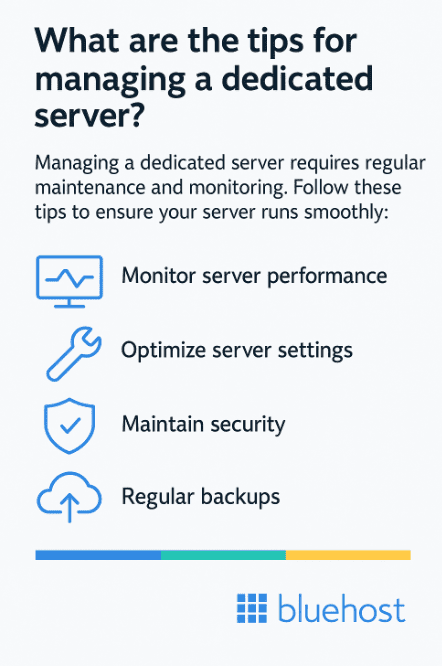
Managing a dedicated server requires regular maintenance and monitoring. Follow these tips to ensure your server runs smoothly:
- Monitor server performance: Keep track of the central processing unit (CPU) and memory usage to prevent resource bottlenecks.
- Optimize server settings: Regularly review your server settings and dedicated server configuration to ensure efficient resource allocation.
- Maintain security: Utilize intrusion detection systems, firewalls and regularly update your chosen operating system to safeguard against vulnerabilities.
- Regular backups: Ensure that your server’s data is backed up regularly and stored securely. This is crucial for protecting your data from internet outages or server crashes.
Additional features and add-ons to consider for your dedicated server
Enhance the functionality of your dedicated server with these additional features and add-ons:
- Advanced security tools: Enhance your server’s security by adding SSL certificates, DDoS protection and backup services.
- Gaming server features: When setting up a gaming server, consider installing game management software for enhanced control and performance.
- Server monitoring tools: Use tools to monitor server settings and performance, including CPU, RAM and disk usage.
- IP address management: Efficiently manage your public IP address to control access to your server and enhance security.
- Scalable resources: Upgrade your server’s central processing unit or physical server for better performance as your needs grow.
Final thoughts
Choosing the correct dedicated server configuration is essential for optimizing performance, security and scalability. Whether you’re managing a high-traffic website, setting up a gaming server or ensuring data protection, a dedicated server gives you the power to customize your server environment.
Bluehost offers flexible and reliable dedicated hosting solutions that are perfect for businesses of all sizes.
With Bluehost, you get powerful dedicated hosting solutions that are tailored to fit your business needs. Get the performance, reliability and security your website deserves.
Explore Bluehost Dedicated hosting and start optimizing today!
FAQs
A dedicated server configuration involves setting up and customizing the hardware and software to meet your specific needs, such as for a gaming server or high-traffic website. The configuration can vary depending on usage.
To set up your own dedicated server, you need to choose the hardware, install the operating system, configure server settings and secure the public IP address for access. A txt file can help automate configurations.
An example of a dedicated server is a gaming server, where a physical server is created automatically to handle high-traffic and resource-intensive gaming applications, providing high performance and low latency.
A dedicated server offers complete control over the hardware, unlike hosting, where resources are shared. With a dedicated server, you control all aspects, from server settings to the chosen operating system.
The disadvantages of a dedicated server include high upfront costs, more complex server configuration and the responsibility to manage the physical server. Maintenance can also vary depending on the server’s usage.
You would need a dedicated server for complete control, better security and handling high performance applications, such as a gaming server or large-scale website. It offers exclusive resources for optimal results.
An own dedicated server gives you complete control over your server’s resources, allowing you to customize its configuration to suit your specific needs.
To set up a dedicated game server, configure your network configuration, allocate sufficient high performance resources and ensure your server meets the specific requirements for gaming.
To configure your IP address, assign a public IP address for remote access, ensuring secure and reliable communication between your server and clients.
For optimal network configuration, ensure your server’s IP address is correctly assigned and that your firewall and security settings allow for smooth data flow while protecting your server.
High performance is essential to handle large amounts of data, support traffic spikes and ensure reliable operation for dedicated game servers or resource-heavy applications.
Complete control means you have full access to configure your own dedicated server with customizable settings, network configuration and resource allocation, without restrictions from other users.
Bare metal hosting provides dedicated physical hardware, offering the high performance and complete control of a dedicated server, without the virtualization layer found in cloud hosting.
Yes, a dedicated server offers more resources, control and performance compared to a VPS, which shares resources with others.
Yes, with managed hosting providers like Bluehost, you can configure a dedicated server without deep technical skills.


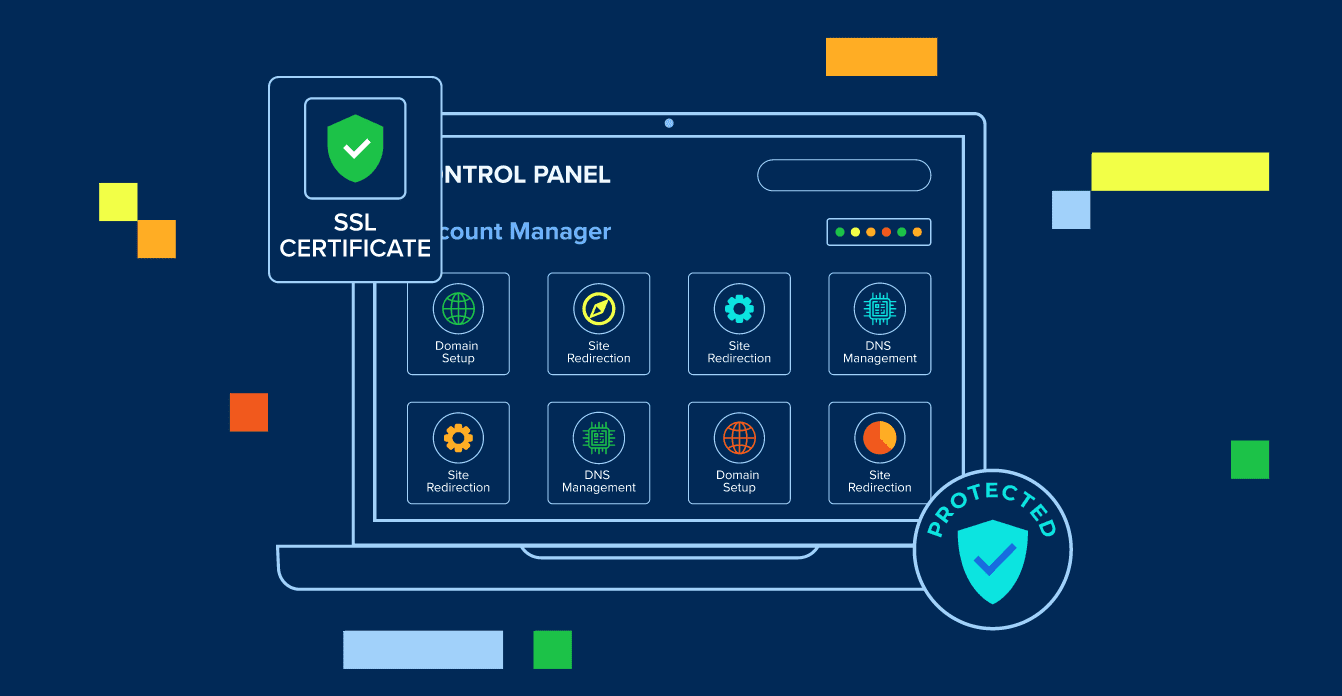
Write A Comment